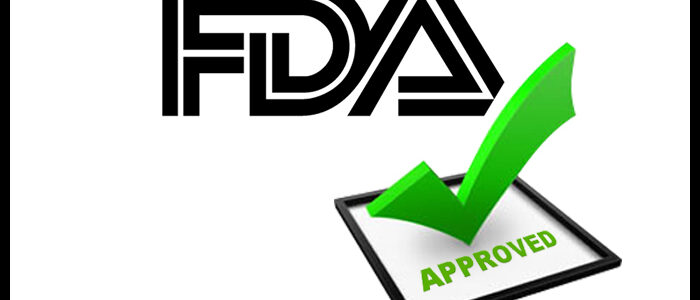
Biogen’s Aduhelm Gets FDA Approval – A New Drug For Alzheimer’s In 18 Years, Priced At $56,000/Yr
A new treatment for Alzheimer’s in 18 years has made it to the finish line, thanks to the FDA approval of Aduhelm.
Aduhelm, developed by Biogen Inc.(BIIB)/Eisai Co., Ltd., has been granted accelerated approval by the U.S. regulatory agency.
Biogen licensed Aducanumab, an antibody that targets amyloid-beta, from Neurimmune AG under a collaborative development and license agreement. Since October 2017, Biogen and Eisai have collaborated on the development and commercialization of Aducanumab globally.
Aduhelm, known generically as aducanumab, is the first novel therapy to be approved for Alzheimer’s disease since 2003.
The development of Alzheimer’s drugs has been plagued by a high failure rate. Aduhelm has also had a bumpy ride.
Resurrection of EMERGE and ENGAGE
In March 2019, Biogen and Eisai discontinued their global phase III trials, dubbed ENGAGE and EMERGE, evaluating Aducanumab in patients with early stages of Alzheimer’s disease (mild cognitive impairment and mild dementia) with confirmed presence of amyloid pathology. The decision to discontinue the trials was based on results of a futility analysis conducted by an independent data monitoring committee, which indicated the trials were unlikely to meet their primary endpoint upon completion.
The primary objective of the study was to evaluate the efficacy of monthly doses of aducanumab as compared with placebo in slowing cognitive and functional impairment as measured by changes in the Clinical Dementia Rating-Sum of Boxes (CDR-SB) score.
However, seven months after pulling the plug on the EMERGE and ENGAGE trials, Biogen announced that it has reanalyzed the data from the trials and that it is going to seek FDA approval for Aducanumab. Biogen stated that the EMERGE trial showed significant findings and a subset from the ENGAGE trial supported the positive findings from EMERGE.
FDA Panel Said No But FDA Says Yes To Aduhelm
The Biologics License Application for Aduhelm (Aducanumab) submitted to the FDA in 2020 included clinical data from two phase III studies, dubbed EMERGE and ENGAGE, as well as the phase 1b PRIME study.
Only one of the two phase III trials, i.e. the EMERGE trial met its primary endpoint showing a significant reduction in clinical decline while the ENGAGE study failed to meet its primary endpoint. The PRIME study indicated that Aduhelm reduced amyloid beta plaque in a dose- and time-dependent fashion.
Last November, an FDA panel voted 0 yes, 10 no and 1 uncertain that it is “reasonable” to consider EMERGE – the single phase III positive study, as primary evidence of effectiveness of Aducanumab for the treatment of Alzheimer’s disease.
However, much to the surprise of many, the FDA has approved Aduhelm, concluding that the benefits of Aduhelm for patients with Alzheimer’s disease outweighed the risks of the therapy.
Aduhelm becomes the first treatment directed at the underlying pathophysiology of Alzheimer’s disease, the presence of amyloid beta plaques in the brain.
Since the drug has been approved under accelerated approval pathway, Biogen is required to conduct post-approval studies to verify the anticipated clinical benefit.
Cost & Sales Potential
According to Biogen, the wholesale acquisition cost of Aduhelm, which is an infusion once every four weeks, is $4,312 per infusion for a patient of 74 kg-the average weight of a U.S. patient with mild cognitive impairment (MCI) or mild dementia.
The yearly cost at the maintenance dose (10 mg/kg) would be $56,000.
Research firm Evaluate Vantage has estimated that Aducanumab has the potential to achieve peak sales of $4.9 billion by 2026.
Experts Speak
Commenting on the approval, Dr. Stephen Salloway, Director of Neurology and the Memory and Aging Program at Butler Hospital, said, “This approval represents a major advance in the treatment of Alzheimer’s disease. By reducing amyloid beta plaques in the brain, we are addressing one of the defining pathologies of the disease. People with Alzheimer’s disease, together with their doctors, can now decide if the treatment is right for them.”
George Vradenburg, Chairman and Co-Founder of UsAgainstAlzheimer’s, said, “Today’s approval of ADUHELM is a transformational breakthrough in the fight to stop this horrible disease. After years of disappointment and despair, this decision offers new hope for many families and a trigger for future investment and innovation.”
Patrizia Cavazzoni, Director, FDA Center for Drug Evaluation and Research said, “Although the Aduhelm data are complicated with respect to its clinical benefits, FDA has determined that there is substantial evidence that Aduhelm reduces amyloid beta plaques in the brain and that the reduction in these plaques is reasonably likely to predict important benefits to patients. As a result of FDA’s approval of Aduhelm, patients with Alzheimer’s disease have an important and critical new treatment to help combat this disease”.
Who’s next in the race?
Roche, Lilly, Otsuka, Anavex Life Sciences, and Hyundai Pharmaceuticals are some of the companies that are developing a drug for Alzheimer’s.
Like Biogen’s Aduhelm, Eli Lilly and Co.’s (LLY) Donanemab also targets a type of beta-amyloid.
In a phase II trial dubbed TRAILBLAZER-ALZ, the results of which were announced early this year, Donanemab met the primary endpoint of slowing clinical decline.
BIIB is currently trading at $454.90, up 58.11%; LLY is at $228.95, up 13.33%.
Source: Read Full Article